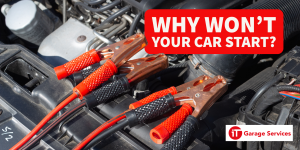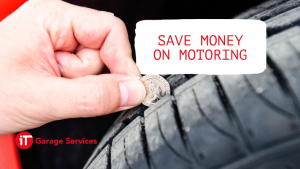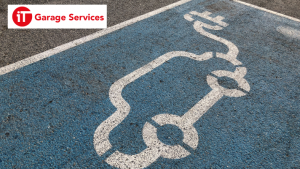Read IT Garage Services guide on the pros and cons of using petrol or diesel or electric cars.
In the 20th Century it used to be very simple: need a car – buy petrol, need a van or lorry – buy diesel.
Now we’ve got a range of fuel sources to consider when buying your new vehicle. The landscape is more complicated now, so IT Garage Services thought we’d set out the pros and cons for each of the fuels so you can be informed before you put plump for one or the other (or the other).
Petrol
Petroleum is another name for oil, a liquid found deep underground. Petroleum is a valuable natural resource and a fossil fuel. It’s used to make many things, one of which is petrol. Petrol vehicles have been the most popular kind of vehicle pretty much since the inception of the motor vehicle.
Here are the pros and cons of petrol-powered cars:
PROS
- The UK’s most popular fuel so accommodated everywhere
- Fun to rev and to drive petrol vehicles
- Iconic models only available in petrol
- The cheapest to buy
CONS
- Petrol vehicles depreciate the fastest, so not a great investment
- Petrol contains carcinogens such as benzene.
- Burning petrol produces dangerous greenhouse gases exacerbating the climate emergency
- The price of petrol is pretty volatile and at the mercy of not only the UK Government’s tax policies but also the producing nation’s domestic situation and international trade policies.
- Oil is a finite resource and is running out. The price of petrol will eventually make all petrol vehicles obsolete

Diesel
Diesel is a popular fuel amongst commercial vehicles like vans and lorries. It was first produced in 1900 by Rudolf Diesel as he experimented with new fuels to power his compression-ignition engine.
Diesel is generally made from petroleum but can be derived from other sources such as animal fat and natural gas.
Here are the pros and cons of diesel-powered cars:
PROS
- Engines last longer and tolerate much higher mileages than petrol
- Lower lifetime cost than petrol because of lower depreciation and engine lasting longer
- Diesel produces less CO2
- Road tax is lower than petrol
- Higher torque means acceleration of larger diesel cars is often better than sports cars. This pulling power is why diesel is used for commercial vehicles.
- More efficient mpg by around 25% compared to petrol. Diesel’s better mpg becomes more obvious over long-distance journeys (another reason why lorries and vans are often diesel-powered).
CONS
- Usually more expensive than petrol to buy
- Produce nitrous oxides, hydrocarbons and particulates. This makes it just as much a pollutant as petrol.
- Insurance is higher for diesel by up to 15%. This is because the repair or replacement of parts is higher on average than petrol vehicles.
- The price of diesel is just as volatile as petrol.
- Again, oil is a finite resource, as with all fossil fuels.
Hybrid
A hybrid car uses more than one means of propulsion – that means combining a petrol or diesel engine with an electric motor.
The main advantages of a hybrid are that it should consume less fuel and emit less CO2 than comparable conventional petrol or diesel-engined vehicle.
PROS
- More fuel-efficient, especially in urban motoring
- Resale values of vehicles are high compared to petrol
- Low tax bills and congestion charges
- No range limits on distance
- More environmentally friendly than conventional fossil fuel-powered vehicles
CONS
- Generally much more expensive than petrol or diesel-powered vehicles to buy
- Maintenance may require specialist garages and mechanics, so the repair will cost more.
- Batteries are expensive to replace
- Hybrids emit more emissions than a pure electric vehicle (but less than petrol or diesel)
- Plug-in hybrids take hours to recharge
- Engines are generally produced less torque for larger loads, so not good for commercial vehicles.

Electric
All-electric vehicles (EVs), also referred to as battery electric vehicles, have an electric motor instead of an internal combustion engine. The vehicle uses a battery pack to power the electric motor and must be plugged into a wall outlet or charging equipment.
Here are the pros and cons of Electric cars
PROS
- Zero emissions, so very green
- Minimal noise pollution and a super quiet travelling experience
- Zero road tax and congestion charging
- Instant acceleration
CONS
- Expensive vehicles to buy
- Limited range
- Extensive recharge time
- Recharging points are scarce compared to petrol and diesel pumps, although this is changing.
Where are the nearest electric car charging points?
What Kind of Car Should I buy?
As you can see from the above, there are many pros and cons to each of the fuel sources for your vehicle. Ultimately, your decision will depend on the type of journeys you are making. If it’s short, town trips then an electric vehicle is probably the one for you. If it’s a commercial vehicle you are after, then a diesel is probably the one for its fuel economy and higher pulling power. Petrol and Hybrid models are the in-between methods. They’ll give you range and longevity with a diverse pros list.
Ultimately though, fossil fuels are going to run out one-day making petrol, diesel and hybrid cars all redundant. This won’t happen for decades, but it is worth thinking about making the transition to electric vehicles. Although the electricity that powers your vehicle is made by fossil fuels, the International community is slowly moving towards green energy. This will make the whole endeavour a lot more environmentally friendly, and with EV technology moving forward at pace now, electric cars might be the choice of the future.

Garage Services in Inverness
Take your vehicle to the best garage services in Inverness – IT Garage Services! It’s your one-stop-shop for car repair in Inverness providing services like:
- Car servicing Inverness
- MOTs Inverness
- Brake tests and repair
- Fast fit services Inverness
- Diagnostics and car repair near me
You can find the best garage in Inverness – IT Garage Services at 35H Harbour Rd Inverness IV1 1UA
Contact us now to book an appointment or for any enquiries:
01463 229922
info@it-garage.beststaghen.com
Mon-Fri 8am- 6pm









